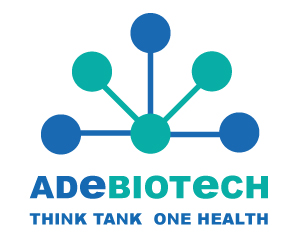
October 7th 2021 9H00-17H30 at GENOPOLE
Confirmed Speakers
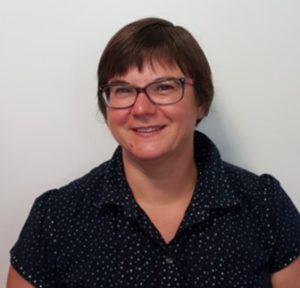
Dr. Nathalie Alépée has twenty-year experience in leadership of investigative toxicology with proof of accountability for relationship of European bodies on Alternative to Animal Testing having being an ESAC member (ECVAM Scientific Advisory Board) and research partner in EU projects.
She has a deep interest in alternatives to animal testing, including the regulatory community, validating agencies, interested public and academia. Her Research Unit includes the development, the optimization, and the validation of alternative methods (including a test method on skin sensitization), and the strategies for the prediction of the hazardous properties of substances.
Dr. Nathalie Alépée is currently involved in international regulatory acceptance bodies, i.e. OECD Test Guidelines and Guidance on topical activities for test methods and defined approaches for skin sensitization, playing key roles by leading some activities.
She is a frequently asked speaker, author of numerous international publications and reviewer on these topics.
Finally, she is, at the EU level, co-chair of the Cosmetics Europe, The Personal Care Association, skin tolerance task force.

Eric obtained a master’s degree in Biology and Pharmacology from the University of Paris VI in 2002 and then worked in an academic environment in dermatology and ophthalmology at the Hotel Dieu Hospital in Paris.
In 2006, he joined Natura’s group, the number one cosmetic company in Brazil, to set up in vitro toxicology assays but also to participate to European initiatives in the field of animal test replacement.
In 2012, he joined Oroxcell to lead the Life Science department where he managed to set up new in vitro assays in a regulatory context for both the pharmaceutical and the cosmetic industry, and he also developed collaborations with cosmetic leading companies to design and validate innovative sensitization and genotoxicity assays.
From the beginning of his industrial carrier, Eric has been committed in the promotion and dissemination of new in vitro tools for toxicology assessment, focussed on the 3Rs (Replacement, Reduction and Refinement) implementation.
Eric is a member of the French Society of Toxicology (SFT), a Eurotox Registered Toxicologist (ERT) and an active member at Adebiotech, the French think tank for biotechnologies promotion.
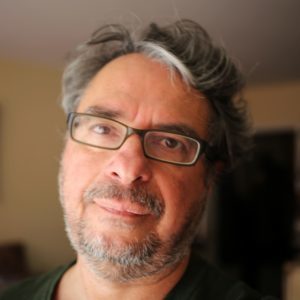
Sylvio Bengio,PhD manages Adebiotech biotechnology think tank scientific programs
He is the coordinator of this meeting on Tissue Engineering
contact: sylvio.bengio@adebiotech.org

After Pharmacy studies, Julian got a PhD in Toxicology in 2008, at the INRAE, under the supervision of Jean-Pierre Cravedi. He then moved to the private sector where he held different positions, specializing into evaluating the safety of drugs and cosmetics, using and developing in vitro methods. In 2014, he cofounded HCS Pharma together with Nathalie Maubon, beginning his journey through the almost endless possibilities offered by High Content Screening technics. After 4 Years spent developing his own expertise as well as the know-how of his team, he left and joined PerkinElmer soon after as a Sales Specialist responsible of the High Content Screening portfolio for the French territory. Beside selling HCS systems, Julian is also aiming at developing relationships and partnerships to ensure that the PerkinElmer’s solutions keep their adequation with the needs of his customers who are researchers and engineers in private companies as well as in academia . »
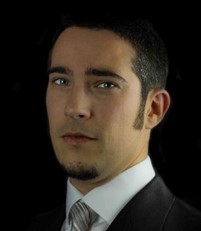
Sébastien CADAU has a master’s degree in biology and a PhD in development & oncology from Joseph Fournier University (Grenoble, France).
After a post-doc in Tissue Engineering to develop an innervated and endothelialized skin model at the LOEX in Laval University (Quebec, Canada), he joined BASF Beauty Care Solutions research team to lead the Tissue Engineering platform, implement the skin model portfolio and evaluate the efficacies of new cosmetic ingredients.
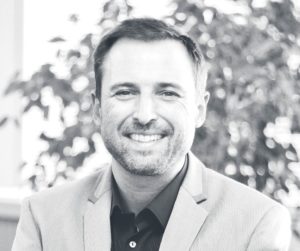
Dr. Samuel Constant is co-founder and CEO of Epithelix (http://www.epithelix.com) leader for in vitro assessment of drug efficacy and toxicity on human respiratory tract. Epithelix has developed unique 3D in vitro human airway tissues and testing services for studying airway pathologies like Asthma, Cystic Fibrosis and Chronic Obstructive Pulmonary Diseases, Bacterial and Viral infections. Samuel is in charge of global management and strategy the company.
Since 2006, Dr. Samuel Constant and his team have won 18 prizes for their scientific achievements, technological innovation, and business development.
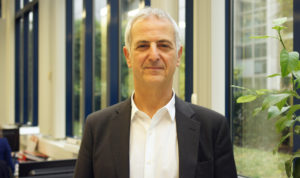
Organic Chemist, graduated from Orsay-Paris XI University in 1988 (nowadays Paris-Saclay), Christophe DINI initiated his carrier as medicinal chemist at Roussel Uclaf, then he successively became Laboratory Head, then Group Leader at Sanofi-Aventis. In parallel he was missioned as Project Leader in Anti-infective and Oncology for projects spanning from target identification to preclinical development.
Thereafter, in 2004, he co-founded Oroxcell, a CRO specialized in DMPK studies, along with developing its own portfolio of innovative therapeutics for of pain treatment. In 2015, while taking the lead of the company, he refocused Oroxcell activities towards In Vitro tests and more precisely by incorporating a suite of in chemico and 3D human epithelia-based model to support the ineluctable evolution towards alternative methods to animal use.
Today a fair number of these methods serve the regulatory safety assessment of substances issued from for pharma, cosmetic, medical device and chemical industries, and therefore endorsed in lieu of animal models.
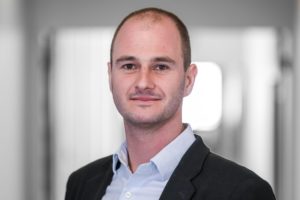
Thibault Honegger is the President, Chief Scientific Officer and co-founder of NETRI. He graduated from the Ecole Centrale of Nantes (France), and received his MS degree in Biotechnologies from Grenoble Alpes University and his PhD degree in Electrical Engineering from LTM (CNRS/ Grenoble Alpes University) on 3D electrokinetic handling of cancer cells and particles in laboratory on chip devices. He was a post-doctoral fellow at the Voldman lab at MIT for two years where he developed and investigated axonal guidance using contactless forces to design neural circuits. He then joined CNRS as a principal investigator in Grenoble to lead the microfluidics neuro-engineering team. In 2018, he co-founded NETRI. He co-authored 25 peer-reviewed research papers, 6 granted patents and 1 book chapter. He is a member of the editor board of IET NanoBioTechnologies. He founded and chairs the Neurofluidics conference: Neuroscience & Microfluidics. He co-founded Peerus in 2015, a web application for scientific paper monitoring, Linkio in 2015 and Smart Force Technologies in 2016.
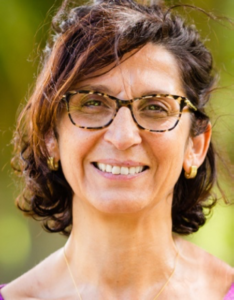
Saadia Kerdine-Römer is Professor of Toxicology, at the Faculty of
Pharmacy, University Paris-Saclay. She is in charge of the Master 2 of
Human Toxicology, Risk Assessment and Vigilance (M2 THERV) and she is
also the president of the French Society of Cellular and Molecular
Toxicology (STCM).
Saadia Kerdine-Römer has her expertise in immunotoxicology, in the field of
skin allergy. She is specialized in skin allergy. She has been working for
many years in the activation of dendritic cells by allergenic
molecules. She demonstrated with her group that haptens can be real
danger signals. Her work is part of the identification of new signaling
pathways in immunity cells in response to haptens. She also works since
few years on the transcription factor Nrf2 and its link in the inflammatory
response of skin allergic origin.

Jan’s main fields of interest are cell and molecular biology, oncology and toxicology. Throughout his career he has been involved in many projects aimed at development of diagnostic and testing methods as well as on understanding the molecular mechanisms involved in development of cancer. Currently he is member of SETOX and ESTIV. He coauthored 12 publications (240 cited references); 2 book chapters; and is a frequent speaker at international meetings and conferences.
Specialties: cell culture, 3D culture optimization, intestinal toxicity/metabolism assays, development and implementation of molecular biology tests for hereditary and sporadic cancers, transcriptional regulation, chromatin remodeling
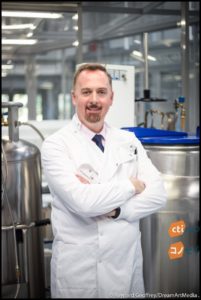
After finishing his PhD (DPhil) on leukaemia research in 1991 in Northern Ireland, Colin completed early research at St George’s Hospital Medical School (London) Dept of Haematology working on Chronic Anaemia’s & Stem Cell Disorders. In 1996 he became Senior Lecturer in Biomedical Sciences at Kingston University and Associate Professor in 2001. In 1999, he founded and became Director of the Stem Cell Therapy Laboratory specialising in Stem Cell Research and regenerative medicine. In 2004 he worked in Houston with NASA, Rice University and Univ. of Texas Hospitals in organ engineering. In 2005 he was appointed the UK’s first Professor of Regenerative Medicine (Newcastle University), leading clinical research in adult stem cells through to patients. He strongly believes in international cooperation and collaboration working internationally and with industry. In 2008 he co-founded the Novus Sanguis charitable consortium for “Responsible Regenerative Medicine”, providing grant funding internationally in adult stem cells. In January 2009 he became the President of the Cell Therapy Research Institute, Lyon, France and CTIBIOTECH a different kind of biotechnology company. Professor McGuckin’s group were first in the world to characterise and produce embryonic-like stem cells from a non-embryonic source – Umbilical Cord Blood. (McGuckin et al, Cell Proliferation, 38, 245-255, 2005). They were also first to make an artificial liver and nervous, pancreatic and a range of other tissues from Umbilical Cord, Cord Blood, and Adipose related stem cells. Pr McGuckin is on the editorial board of international journals, international reviewer [Eg. European Commission}, and an advisor to several medical and science organisations. He has been invited to speak internationally, including European Parliament, Bundestag German Parliament, Austrian Parliament, French Senate, the Vatican, Rome, and the US Senate on Capitol Hill. His group are currently aiming to help cancer patients using advanced technologies. “We aim to bring new therapies to all sections of the world’s community without geoeconomical boundaries and support projects in the third world”. “We believe strongly that new treatments have to be made available to the whole planet, not just to limited countries”. CTIBIOTECH creates “close-to-patient” tissue models of human disease with advanced technologies like 3DBioprinting allowing for the next generation of personalised medicine. CTIBIOTECH works with both the public and private health system globally. CTI has created the world’s most advanced full-tumour models and also created the worlds first ethical babyskin testing system.
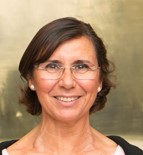
Marisa Meloni, PhD in Drug Delivery and Cutaneous Bio-physic at Renée Descartes University, Paris V, has extensively worked in the dermo- pharmaceutical and cosmetic industry. Her professional background also includes her experience as contract professor of safety assessment and technology of cosmetic products at Milano, Salerno and Padova Universities.
In 2001, she has founded VitroScreen, a research laboratory committed to in Vitro Science : VitroScreen uses exclusively 3D reconstructed tissues and advanced Spheroids models promoting the use of Alternatives to animal testing.
Marisa’s expertise has been applied to develop pre-clinical protocols to assess Safety and Efficacy while delivering strong weight of evidence of the impact of drugs, consumer products, chemicals and environment on body barriers and organs.
She is past president of Celltox (Italian association of in Vitro Toxicology) and currently member of PARERE as Italian expert for cosmetic products and OECD Italian expert member for eye, skin irritation and skin sensitization.
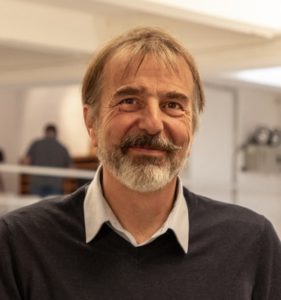
Involved for several years in development and promotion of in vitro toxicology assays based on reconstructed human tissues.
After a PhD in neuroscience at the French National Institute of Health and Medical Research (INSERM) he held a temporary teaching position at the university of Tours (France). He joined L’Oréal R&I in 2000 at the Life Science Research Center where he was involved in development and implementation of computerized tools for alternative to animal approaches in toxicology (results database, expert systems).
In 2004 he was appointed to scientific communication on alternative methods to animal testing and tissue engineering.
In 2011 he joined EPISKIN, a subsidiary of L’Oréal, dedicated to development and production of reconstructed human epithelia. As Scientific Director, he has been involved in several development projects that led to the introduction of new models and methods to the market. He developed the EPISKIN Academy program to promote the dissemination of alternative methods through education and training and to relay EPISKIN commitments to 3Rs.
Involved for several years in biocompatibility of medical devices he is Chairman of the French AFNOR S92J commission and convenior of the WG8 skin irritation and sensitization of the ISO/TC194 for biocompatibility of medical devices. He is also L’Oreal R&I Research associate and member of the advisory council of the Indian Society for Alternatives to Animal Experiments (SAAE)
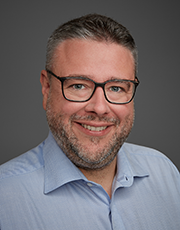
Christian has studied biology and philosophy at the University of Bonn. In 2005 he did his first postdoc with Hans Lehrach at the Max Planck Institute for Molecular Genomics in Berlin. In 2010 his group moved to the Institute for Pathology at the Charité – Universitätsmedizin Berlin focussing on improved patient-derived in vitro models. During his time at the Charité he was appointed head of the core-facility for functional genomics of the Charité. Within the IMI initiative Oncotrack Christian was the the academic lead of the work package in vitro models & cancer stem cells.
In 2012 he, together with SAP was awarded with the Innovation award of the states Berlin and Brandenburg for his work on the Oncolyzer, a mobile-device app that allows to analyze clinical records of cancer-patients in real-time.
Since May 2017 he is speaker and member of the advisory committee for Berlin’s « Pharma Solutions » ZIM cluster.
Christian is currently working on his habilitation and serves as reviewer for various peer-reviewed journals including PloS and Nature.
Christian is member of distinguished national and international scientific societies, including the New York Academy of Sciences (NYAS), the American Association for Cancer Research (AACR), the European Association for Cancer Research (EACR), the Connective Tissue Oncology Society (ctos), the German Cancer Society (DKG) and Berlin’s Cancer Society (BKG).
